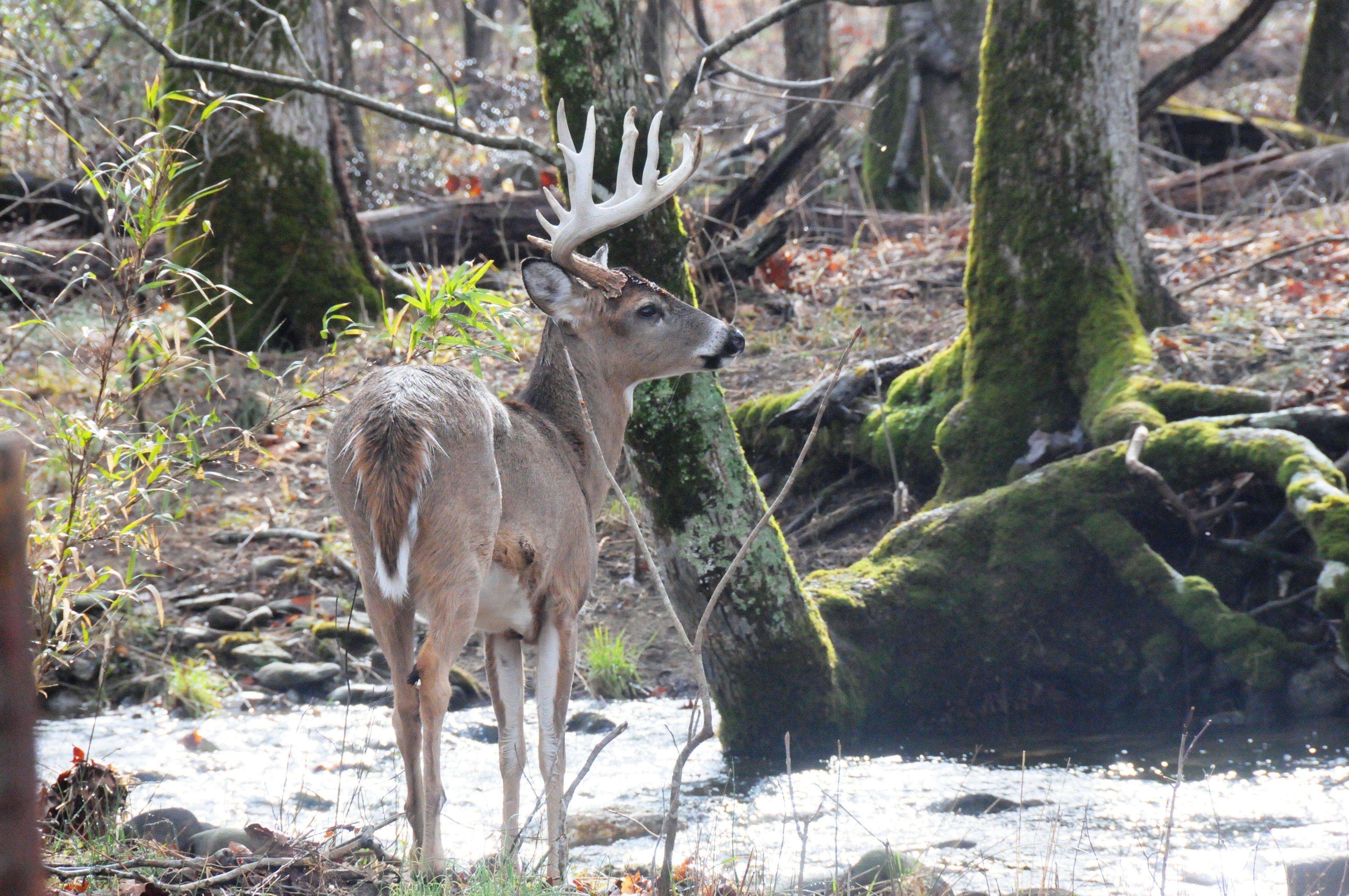Maine, Michigan, Wisconsin, and New Hampshire have all detected PFAS in wild game animals in areas of their states

According to claimsjournal.com, high levels of PFAS (per- and polyfluoroalkyl substances), also known as forever chemicals, have been discovered in deer in several states, including Michigan, New Hampshire, Wiconsin, and Maine. PFAS are industrial compounds used in numerous products, such as nonstick cookware and clothing.
Last year the U.S. Environmental Protection Agency launched an effort to limit pollution from the chemicals, which are linked to health problems such as cancer.
But discovery of the chemicals in wild game animals has resulted in some states issuing do not eat advisories for deer and fish, as well as expanding testing for PFAS in other wildlife.
The fact there is an additional threat to the wildlife — the game that people are going out to hunt and fish — is a threat to those industries, and how people think about hunting and fishing, said Jennifer Hill, associate director of the Great Lakes Regional Center for the National Wildlife Federation.
(Don't Miss: 19 Crazy Deer Hunting Videos)
PFAS chemicals are a serious concern because they don't degrade — or do so slowly in the environment — and can remain in a person's bloodstream throughout life.
The production of consumer goods and associated waste results in chemical contamination of the environment. In addition, PFAS have been used in firefighting foam and in agriculture. For example, PFAS-tainted sewage sludge has been used on fields as fertilizer and compost.
Maine state legislators passed a law in 2021 requiring manufacturers to report their use of the chemicals and to phase them out by 2030 after they were detected in well water at hundreds of times the federal health advisory level. Other states may follow in Maine's footsteps.
According to the National Conference of State Legislatures, more than 20 states have proposed or adopted limits for PFAS in drinking water. California Governor Gavin Newsom recently signed a bill banning the chemicals from cosmetics sold in the state.
David Trahan, executive director of the Sportsman's Alliance of Maine, said more testing will likely find the chemicals in other wild game, such as wild turkeys and fish.
Last year, after finding high levels of PFAS in deer, Maine issued a do not eat advisory for deer harvested in the Fairfield area, just north of Portland. The state is now testing more animals across a larger area.
After testing deer, ducks and geese for PFAS, Wisconsin issued a do not eat advisory for deer liver around Marinette, about 55 miles north of Green Bay. The state also asked fishermen to consume no more than one meal of Lake Superior's rainbow smelt a month.
New Hampshire authorities have also issued an advisory to avoid consuming deer liver.
Tammy Newcomb, senior executive assistant director for the Michigan Department of Natural Resources, said Michigan, the first state to test for PFAS in deer, issued its first do not eat" advisory in 2018 for deer taken in and near Oscoda Township. Since then, the state has issued an advisory against eating organs, such as liver and kidneys, from deer, fish, or any other wild game anywhere in the state.
People like to throw up their arms and say we can't do anything about it. I like to point to our results and say that's not true, Newcomb said. Finding PFAS as a contaminant of concern has been the exception and not the rule.
Florida International University Institute of Environment scientists detected PFAS in all 150 oysters they sampled from around the state, according to an August study. Natalia Soares Quinete, an assistant professor in the institute's chemistry and biochemistry department, says the chemicals are a a long-term poison that threatens human health.
Wildlife authorities use posters in hunting areas and social media to advise hunters of the presence of PFAS in deer.
Kip Adams, chief conservation officer for the National Deer Association, said the discovery of PFAS in states like Maine and Michigan is a big concern.
With the amount of venison my family eats, I can't imagine not being able to do that, Adams said. To this point, everything we've done has been about sharing information and making sure people are aware of it.
For more crazy outdoor stories, visit The Realblog and check out Realtree's Facebook page.






































